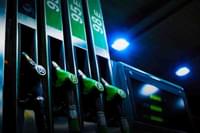
Scrap the Diesel car ban
Bill Wirtz says that rather than tightening restrictions on Diesel cars we should be relaxing them.
A court in Wiesbaden ruled last week that local authorities in Frankfurt must ban older diesel cars as part of efforts to clean up air quality. Much like earlier bans in cities like Stuttgart, the ban is taking place under questionable lobbying circumstances and denies consumer choice.
Diesel engines have come under fire in recent months for their pretended effect on public health. Environmental activists had been working for years on outright bans for circulating diesel cars, pointing to its health effects in comparison to other combustion engines. The science on that is questionable.
Former President of the German Pneumology Society, Doctor Dieter Köhler, contradicts these activists and sees only a minor health-endangering role in particulate matter and nitrogen oxides. Many studies would be misinterpreted findings, and the costs of outlawing diesel vehicles would stand in no proportionate relationship to health hazards.
The Canadian government also agrees with this assessment. It writes: "Today's diesel vehicles are cleaner, quieter and perform on par or better than their gasoline counterparts. The improvements result from the availability of cleaner fuels and the use of advanced technologies, including electronic controls, common rail fuel injection, turbocharging, sound dampening and exhaust emission reduction components."
The Society of Motor Manufacturers and Traders (SMMT), which represents motor-vehicle manufacturers (and other on that particular supply chain, independently of their productions), writes this: "Diesel is critical to reducing CO2emissions, which in turn is tackling climate change – diesel cars emit, on average, 20% lower CO2 than petrol equivalents. In fact, since 2002, diesel cars have saved 3.5 million tonnes of CO2 from going into the atmosphere."
A noticeably stark contrast with the claims of Deutsche Umwelthilfe, which does accept that so far, only Volkswagen has been forced to admit to cheating on its emissions testing, however, "almost all other important manufacturers have been able to prove that their own measurements have in part shown massive exceedances of limit values. The results: 33 out of 36 diesel vehicles measured exceed the nitrogen oxide limits on the road, sometimes many times over."
You won't find Toyota amongst those named by Deutsche Umwelthilfe, because the group cashed in €80,000 from the Japanese manufacturer over the years. The fact that Toyota produces mainly petrol and hybrid cars and is likely to benefit from bans on diesel cars, particularly if they come in quickly, must of course be completely unrelated. In the meantime, their mentions of Ford should also make their fundraising department nervous, as it receives grants from the American ClimateWorks Foundation, which is mainly sponsored by the Henry Ford Foundation.
In July last year, the French government decided to ban all cars that run on petrol by 2040. Given that only 1.2 per cent of French cars are electric, only a harsh restriction of consumer choices and stringent sanctions can make that possible in the next 20 years.
In 2040, if we are still in need of cars running on fossil fuels, the ban would be disastrous and is unlikely to be implemented, and if we don't need them anymore by that time the legislation would be obsolete. The pretense, however, that it is the role of government to choose winners and losers in the innovation of a free market, is ridiculous. Consumers can decide for themselves whether they want to get a diesel car or not, and it definitely shouldn't be the role of environmentalist organisations to advance an anti-science narrative, only to satisfy their donors or an ideological base which is hungry for yet another ban on people's lifestyles.
What is needed are legislative changes than loosen the current strict rules on diesel cars, which would prevent courts from outlawing them all together. If not the consequences for consumer choice, industry and jobs related to both manufacturing and tourism could be disastrous.













